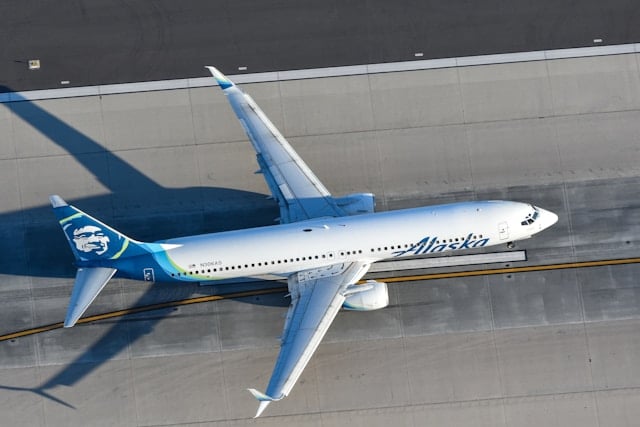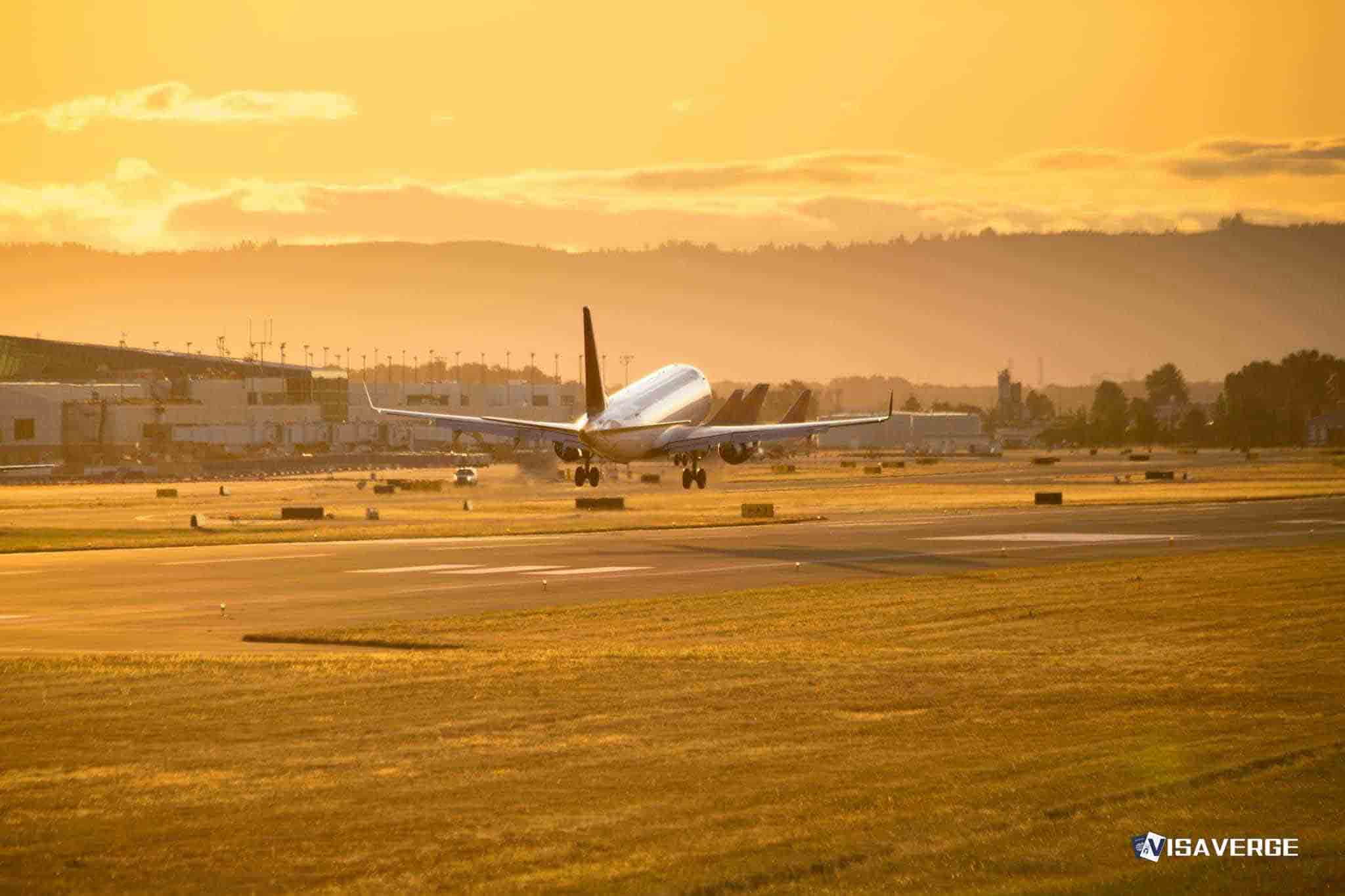Key Takeaways
• In 2024, Prestwick Airport saw a 32% increase to 2,437 private jet flights.
• Oxfam Scotland estimates a private jet tax could raise up to £30 million annually.
• Scottish Government delayed Air Departure Tax implementation with no current private jet tax.
Scotland Faces Pressure to Tax Private Jet Surge as Prestwick Airport Traffic Soars
Scotland is at the center of a heated debate over private jet taxation, with new figures showing a dramatic rise in private jet flights—especially at Prestwick Airport. In 2024, Scottish airports recorded 12,143 private jet flights, and Prestwick Airport, which is owned by the Scottish Government, saw a 32% increase in traffic. Campaigners and charities argue that Scotland is missing out on millions of pounds in potential tax revenue and risking its climate commitments by failing to introduce a dedicated private jet tax. The Scottish Government has published high-level principles for a new Air Departure Tax (ADT), but after years of delays, there is still no specific tax on private jet flights.

This issue has major implications for Scotland’s climate goals, public finances, and international reputation. Here’s a detailed look at what’s happening, why it matters, and what could come next.
Private Jet Traffic Hits Record Highs at Prestwick Airport
Private jet use in Scotland has reached new heights. In 2024, there were 12,143 private jet flights at Scottish airports, compared to about 13,000 in 2023. The biggest jump was at Prestwick Airport, where flights rose from 1,845 in 2023 to 2,437 in 2024—a 32% year-on-year increase. The surge was especially sharp in July 2024, when The Open golf tournament brought 453 private jets to Prestwick, averaging nearly 15 flights per day.
This growth is part of a global trend. Over the past 20 years, the worldwide private jet fleet has grown by 133%. Scotland’s airports, and Prestwick in particular, are now major hubs for private jet traffic.
Why Prestwick Airport Matters
Prestwick Airport is unique because it is owned by the Scottish Government. This means the government is directly responsible for decisions about how the airport operates and how it is taxed. The sharp rise in private jet flights at a government-owned airport has drawn criticism from environmental groups and charities, who say it undermines Scotland’s climate leadership.
Calls for a Dedicated Private Jet Tax
As private jet flights increase, so do calls for a dedicated private jet tax. Oxfam Scotland, Stop Climate Chaos Scotland, and other campaigners argue that Scotland is losing out on millions in potential revenue and failing to address the climate impact of luxury air travel.
Jamie Livingstone, Head of Oxfam Scotland, summed up the campaigners’ position:
“Private jets are the poster child of climate injustice… A private jet tax would send a powerful message that Scotland won’t tolerate the reckless demolition of our collective future.”
How Much Revenue Is at Stake?
- Oxfam Scotland estimates a private jet tax could raise up to £30 million per year for Scotland.
- If introduced across the UK, the total could reach £2 billion annually.
- The Scottish Fiscal Commission projects Scotland’s share of Air Passenger Duty (APD) revenue at £305 million for 2025-26, rising to £372 million by 2030-31.
Campaigners say this money could be used to fund public services, improve public transport, and support green initiatives.
Current Tax Policy: Delays and Gaps
Air Departure Tax (ADT): Still Not Implemented
The Scottish Parliament passed the Air Departure Tax (Scotland) Act in 2017, planning to replace the UK-wide Air Passenger Duty (APD) from April 1, 2018. However, the rollout has been delayed for more than seven years due to legal concerns about exemptions for flights serving the Highlands and Islands, and ongoing talks with the UK Government.
As of June 2025, the Scottish Government has only published high-level principles for ADT. There is still no operational ADT, and no dedicated tax on private jet flights.
Key points about ADT:
– Intended to replace APD in Scotland
– Implementation delayed due to legal and policy issues
– No special rate for private jets under current plans
For more details on the status of ADT, readers can visit the Scottish Government’s official Air Departure Tax page.
No Dedicated Private Jet Tax
Currently, private jet passengers pay the same APD as other travelers, but campaigners argue this is not enough. Private jets emit far more carbon per passenger than commercial flights, and nearly 40% of flights are “empty legs”—flights with no passengers, just repositioning the aircraft.
Campaigners’ proposals include:
– A standalone private jet tax
– A special ADT rate for private jets, at least 10 times higher than the standard rate
Climate Impact: Private Jets and Carbon Emissions
Private jets are among the most polluting forms of travel. According to campaigners:
- Private jets emit up to 14 times more carbon per passenger than commercial flights
- They emit up to 50 times more carbon than trains
- Nearly 40% of private jet flights are “empty legs,” flying without passengers
This means a small number of wealthy travelers are responsible for a large share of aviation emissions. Campaigners say this is a clear example of carbon inequality, where the richest people cause the most pollution.
Policy Process: How a Private Jet Tax Could Be Introduced
If Scotland decides to move forward with a private jet tax, the process would likely follow these steps:
- Legislative Amendment: The Scottish Parliament would need to amend the Air Departure Tax (Scotland) Act to add a special rate or separate tax for private jet flights.
- Consultation: The government would hold a public consultation to set rates, decide on exemptions, and plan how the tax would be collected.
- Revenue Scotland Readiness: Revenue Scotland, the agency responsible for collecting taxes, would need to prepare to administer the new tax.
- Coordination with the UK Government: Scotland would need to work with the UK Government to resolve issues about exemptions for the Highlands and Islands and to avoid double taxation.
- Implementation: The government would set the tax rates (possibly 10 times the standard ADT rate for private jets), define which flights are taxable, and start collecting the tax.
Stakeholder Perspectives: Supporters and Opponents
Supporters
- Climate campaigners and charities like Oxfam Scotland and Stop Climate Chaos Scotland strongly support a private jet tax. They argue it is needed for climate justice, to raise revenue, and to restore Scotland’s reputation as a climate leader.
- Some Members of the Scottish Parliament (MSPs) have also voiced support, saying the tax would help meet Scotland’s net zero targets.
Opponents and Concerns
- Business groups and the aviation industry warn that higher taxes could hurt Scotland’s economy by making it less attractive for business travelers and investors.
- The Scottish Government has cited legal and administrative complexities as reasons for the delay, especially around exemptions for certain flights and coordination with the UK Government.
Comparative Policy: What Other Countries Are Doing
France has already taken steps to restrict private jet use, and campaigners say Scotland should follow this example. They argue that without action, Scotland risks falling behind other countries in tackling climate change.
Reputational Risk: Climate Leadership at Stake
The sharp rise in private jet use, especially at a government-owned airport like Prestwick, is seen as damaging Scotland’s image as a leader on climate action. Campaigners warn that failing to act sends the wrong message both at home and internationally.
Key concerns include:
– Undermining Scotland’s credibility on climate change
– Missing out on funding for green projects
– Allowing the wealthiest polluters to avoid paying their fair share
Revenue and Equity: Who Benefits from a Private Jet Tax?
A dedicated private jet tax could provide significant new funding for Scotland. According to Oxfam Scotland, up to £30 million per year could be raised and used for:
- Improving public transport
- Supporting green energy projects
- Funding public services
The tax would also address carbon inequality by making the wealthiest travelers pay more for their higher emissions.
Background: How Did We Get Here?
Devolution of Air Passenger Duty
The Smith Commission in 2014 recommended devolving Air Passenger Duty (APD) to Scotland. The Scottish Parliament passed the Air Departure Tax (Scotland) Act in 2017, but implementation has been stalled for over seven years due to legal and policy disputes.
Rising Private Jet Use
The global private jet fleet has grown by 133% over the past two decades. Scotland has seen record numbers of private jet flights in recent years, with Prestwick Airport becoming a key hub.
Future Outlook: What Happens Next?
Policy Debate in 2026
The Scottish Government has promised a parliamentary debate on tax reform in early 2026. This could include proposals for a private jet tax, as pressure from campaigners and the public continues to grow.
Pressure for Action
With climate targets approaching and public scrutiny increasing, campaigners are stepping up calls for immediate action. The issue is expected to be a major topic in the next Scottish Budget and in the run-up to the 2026 parliamentary session.
Practical Guidance: What Should Stakeholders Do Now?
For travelers and private jet operators:
– Stay informed about possible changes to tax rules at Scottish airports, especially Prestwick Airport.
– Monitor updates from the Scottish Government and Revenue Scotland about the status of ADT and any new private jet taxes.
For campaigners and the public:
– Participate in public consultations if a private jet tax is proposed.
– Contact MSPs to share views on climate policy and tax fairness.
For businesses and the aviation industry:
– Engage with policymakers to ensure concerns about connectivity and competitiveness are heard.
– Prepare for possible changes to tax rates and reporting requirements.
Summary Table: Key Facts
| Year | Private Jet Flights (Scotland) | Prestwick Flights | Potential Revenue from Private Jet Tax | Policy Status |
|---|---|---|---|---|
| 2023 | ~13,000 | 1,845 | Up to £30 million/year (Oxfam est.) | No tax |
| 2024 | 12,143 | 2,437 | Up to £30 million/year (Oxfam est.) | No tax |
Official Resources
- For the latest on Air Departure Tax, visit the Scottish Government’s official ADT page.
- Revenue Scotland provides updates on tax administration at revenue.scot.
- Oxfam Scotland’s campaign information is available at scotland.oxfam.org.uk.
- Stop Climate Chaos Scotland offers policy analysis at stopclimatechaos.scot.
Conclusion: Scotland at a Crossroads
Scotland is experiencing a rapid rise in private jet traffic, with Prestwick Airport at the center of the debate. Campaigners warn that millions in potential tax revenue are being lost and that climate goals are at risk. Despite having the power to act, the Scottish Government has not yet introduced a dedicated private jet tax or fully implemented the Air Departure Tax. The issue is likely to remain at the forefront of climate and fiscal debates, with significant developments expected in the next parliamentary term.
As reported by VisaVerge.com, the coming months will be critical for Scotland’s climate policy, public finances, and international reputation. Stakeholders across the country are watching closely to see whether Scotland will take bold action or continue to delay.
Actionable Takeaways:
– Watch for updates on ADT and private jet tax proposals in early 2026.
– Participate in public consultations and debates to shape Scotland’s climate and tax policy.
– Stay informed through official government channels and trusted sources.
Scotland’s decision on private jet taxation will have lasting effects on its climate goals, economy, and standing as a global leader on environmental issues.
Learn Today
Private Jet → A small luxury aircraft used by individuals or companies, often emitting more carbon per passenger than commercial planes.
Air Departure Tax (ADT) → A planned Scottish tax replacing UK Air Passenger Duty, intended to tax flights departing Scotland.
Empty Legs → Private jet flights without passengers while repositioning aircraft, contributing to inefficient fuel use and emissions.
Carbon Inequality → The disproportionate carbon emissions caused by wealthier individuals compared to the general population.
Prestwick Airport → A Scottish Government-owned airport experiencing a 32% rise in private jet flights in 2024.
This Article in a Nutshell
Scotland faces urgent debate as private jet flights soar, especially at government-owned Prestwick Airport. Campaigners demand a dedicated tax to address climate impact and secure millions in revenue. Despite plans for Air Departure Tax, no specific levy on private jets exists, threatening climate goals and fiscal opportunities.
— By VisaVerge.com













